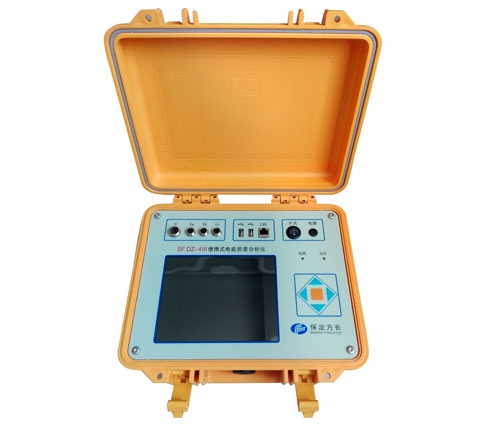Baoding Fangchang Electric Power Technology Co., Ltd
Tel: 0312-5952983
Fax: 0312-7520939
Website: www.bdsyfc.cn
Email: [email protected]
Address: Building D, Entrepreneurship Center, No. 295 Jingxiu Street, Gaokai District, Baoding City
![]() National ordering hotline:fifteen billion eight hundred and three million one hundred and twenty-five thousand five hundred and sixty-five
National ordering hotline:fifteen billion eight hundred and three million one hundred and twenty-five thousand five hundred and sixty-five
Baoding Fangchang Electric Power Technology Co., Ltd
Tel: 0312-5952983
Fax: 0312-7520939
Website: www.bdsyfc.cn
Email: [email protected]
Address: Building D, Entrepreneurship Center, No. 295 Jingxiu Street, Gaokai District, Baoding City
Choose the right onePower quality analyzerFor ensuringPower quality monitoringThe accuracy of analysis is crucial. When selecting a power quality analyzer, the following factors need to be considered:
1. Measurement accuracy: The main function of the power quality analyzer is to accurately measure and analyze power quality parameters, such as voltage, current, power factor, harmonics, etc. Therefore, the measurement accuracy of the instrument is a very important consideration. When selecting an instrument, one should check its technical specifications and accuracy instructions, and choose an instrument with good accuracy.
2. Frequency range: Power quality issues are usually related to the frequency of the power grid. Therefore, the selected instrument should have an appropriate frequency range to ensure the correct measurement and analysis of power quality parameters. The standard frequency of mains power is 50Hz or 60Hz, so the frequency range of the instrument needs to include these two ranges.
3. Harmonic analysis ability: Harmonic is an important parameter of power quality, which may lead to many problems, such as equipment failures, increased power grid losses, and current waveform distortion. Therefore, the selected power quality analyzer should have harmonic analysis capabilities and be able to measure and analyze harmonics of different frequencies. In addition, the instrument should have good harmonic suppression ability to ensure accurate measurement of harmonic signals and avoid misjudgment.
4. Data processing capability: The selected power quality analyzer should have good data processing and storage capabilities. Power quality issues usually require long-term data recording and analysis, so instruments should have sufficient storage capacity and data transmission capacity to export data to computers or other devices for further analysis and processing.
5. Ease of use and operation interface:Power quality analyzerThe ease of use is very important for engineers and technicians. The operation interface of the instrument should be friendly and intuitive, with easy to operate and set functions. In addition, the instrument should have a clear display screen and suitable button layout to facilitate user operation and monitoring.
6. Reliability and Durability: Power quality analyzers are usually used in industrial environments and have harsh working conditions. Therefore, the selected instrument should have good reliability and durability, and be able to adapt to various environmental requirements.
7. Price and service support: Afterwards, it is also necessary to consider the price of the power quality analyzer and the service support provided by the supplier. Choose an appropriate price range and ensure that suppliers can provide timely technical support, software updates, and after-sales service.

 Online Service
Online Service
 Contact number
Contact number Online Message
Online Message